
Juan García Esquivel, often known mononymously as Esquivel!, was a Mexican band leader, pianist, and composer for television and films. He is recognized today as one of the foremost exponents of a sophisticated style of largely instrumental music that combines elements of lounge music and jazz with Latin flavors. Esquivel is sometimes called "The King of Space Age Pop" and "The Busby Berkeley of Cocktail Music", and is considered one of the foremost exponents of a style of late 1950s-early 1960s quirky instrumental pop that became known as "Space Age Bachelor Pad Music".
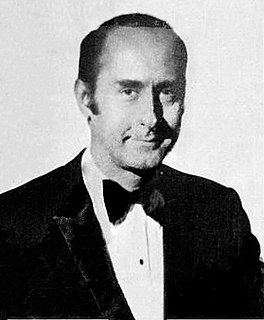
Henry Mancini was an American composer, conductor, arranger, pianist and flautist. Often cited as one of the greatest composers in the history of film, he won four Academy Awards, a Golden Globe, and twenty Grammy Awards, plus a posthumous Grammy Lifetime Achievement Award in 1995.
RCA Records is an American record label currently owned by Sony Music Entertainment, a subsidiary of Sony Corporation of America. It is one of Sony Music's four flagship labels, alongside RCA's former long-time rival Columbia Records; also Arista Records, and Epic Records. The label has released multiple genres of music, including pop, classical, rock, hip hop, afrobeat, electronic, R&B, blues, jazz, and country. Its name is derived from the initials of its defunct parent company, the Radio Corporation of America (RCA). RCA Records was fully acquired by Bertelsmann in 1987, making it a part of Bertelsmann Music Group (BMG) and became a part of Sony BMG Music Entertainment after the 2004 merger of BMG and Sony; it was acquired by the latter in 2008, after the dissolution of Sony/BMG and the restructuring of Sony Music. RCA Records is the corporate successor of the Victor Talking Machine Company, founded in 1901, making it the second-oldest record label in American history, after sister label Columbia Records, founded in 1889.
Hugo Winterhalter was an American easy listening arranger and composer, best known for his arrangements and recordings for RCA Victor.

Annunzio Paolo Mantovani was an Anglo-Italian conductor, composer and light orchestra-styled entertainer with a cascading strings musical signature.

Headquarters is the third album by the Monkees, released in May 1967 after the first season of their television series had concluded. It was the first album on which the group members made substantial songwriting and instrumental contributions, rather than relying on session musicians and professional songwriters. After a struggle for creative autonomy with their record label, the group had been allowed, to a degree, to record by themselves. Headquarters became the group's third consecutive No. 1 album on the Billboard 200 chart and was certified double platinum in the United States with sales of more than two million copies within the first two months of release. It also peaked at No. 2 on the UK charts. It is included in the 2006 book 1001 Albums You Must Hear Before You Die.
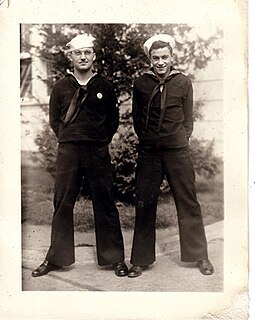
Hugo Mario Montenegro was an American orchestra leader and composer of film soundtracks. His best-known work is interpretations of the music from Spaghetti Westerns, especially his cover version of Ennio Morricone's main theme from the 1966 film The Good, the Bad and the Ugly. He composed the score for the 1969 Western Charro!, which starred Elvis Presley.

101 Strings Orchestra was a brand for a highly successful easy listening symphonic music organization, with a discography exceeding 150 albums and a creative lifetime of around 30 years beginning in 1957. 101 Strings had a trademark sound, focusing on melody with a laid-back ambiance most often featuring strings. Their LPs were individualized by the slogan "The Sound of Magnificence", a puffy cloud logo and sepia-toned photo of the orchestra. The 101 Strings orchestra included 124 string instruments, and was conducted by Wilhelm Stephan. The orchestra's famous official photograph was taken in the Musikhalle Hamburg.

Claus Ogerman was a German arranger, conductor, and composer best known for his work with Billie Holiday, Antonio Carlos Jobim, Frank Sinatra, Michael Brecker, and Diana Krall.

René Joseph Hall was an American guitarist and arranger. He was among the most important behind the scenes figures in early rock and roll, but his career spanned the period from the late 1920s to the late 1980s, and encompassed multiple musical styles.
RCA Camden was a budget record label of RCA Victor, originally created in 1953 to reissue recordings from earlier 78rpm releases. The label was named "Camden", after Camden, New Jersey where the offices, factories and studios of RCA Victor and its predecessor, the Victor Talking Machine Company had been located since 1901.
Ethel Nagy Gabriel was an American record producer and record executive with a four-decade career at RCA Victor. She produced over 2,500 music albums including 15 RIAA Certified Gold Records and hits by Elvis Presley, Perry Como, Al Hirt, Henry Mancini, and Roger Whittaker among others.
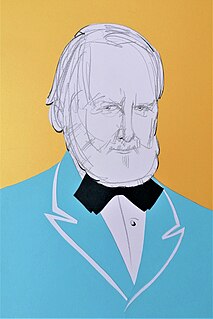
Lawrence Joseph Elgart was an American jazz bandleader. With his brother Les, he recorded "Bandstand Boogie", the theme to the long-running dance show American Bandstand.
Raymond A. Agoult, was a conductor and composer.

Willis Leonard Holman, known professionally as Bill Holman, is an American composer, arranger, conductor, saxophonist, and songwriter working in jazz and traditional pop. His career is over seven decades long, having started with the Charlie Barnet orchestra in 1950.
Johnny Douglas was an English composer, pianist, musical director, conductor, and string arranger primarily working with film scores and orchestras. He recorded more 500 tracks for Decca Records, over 80 albums for RCA Records, and provided music for 36 films during his career. He was nominated for a BAFTA for his soundtrack for the 1970 film The Railway Children and led RCA'S Living Strings for many years. In addition to films, Douglas composed and conducted music for television series including Spider-Man and His Amazing Friends, Dungeons & Dragons, The Incredible Hulk, G.I. Joe: A Real American Hero, and The Transformers.
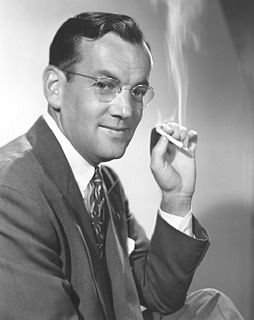
Between 1938 and 1944, Glenn Miller and His Orchestra released 266 singles on the monaural ten-inch shellac 78 rpm format. Their studio output comprised a variety of musical styles inside of the Swing genre, including ballads, band chants, dance instrumentals, novelty tracks, songs adapted from motion pictures, and, as the Second World War approached, patriotic music.
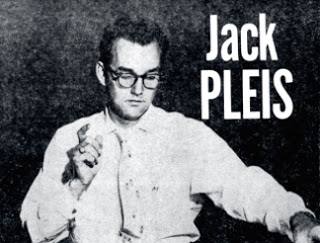
Jack K. Pleis was an American jazz pianist, arranger, conductor, composer and producer. He recorded on London and Decca Records in the 1950s, and Columbia Records in the 1960s. During the course of his career, Pleis worked with many artists, including Louis Armstrong, Harry Belafonte, Bing Crosby, Sammy Davis Jr., Benny Goodman, Earl Grant, Brenda Lee, and Joe Williams. Between 1950 and 1976, more than 150 songs were arranged by Pleis. His surname is pronounced "Pleece".

RCA Studio A is a music recording studio in Nashville, Tennessee built and founded in 1964 by Chet Atkins, Owen Bradley and Harold Bradley. Originally known simply by the name "RCA Victor Nashville Sound Studios", along with adjacent RCA Studio B, it became known in the 1960s for becoming an essential factor and location to the development of the musical production style and sound engineering technique known as the Nashville Sound.
Joseph P. Lippman was an American composer, arranger, conductor, pianist, and songwriter working in jazz and traditional pop. His musical career was over five decades long, having started at age 19 with the Benny Goodman orchestra in 1934 and writing for television, films, and Broadway in the 1980s. He composed and arranged for Bunny Berigan, Jimmy Dorsey, Sarah Vaughan, Charlie Parker and worked as staff arranger in television for Perry Como and Hollywood Palace.












